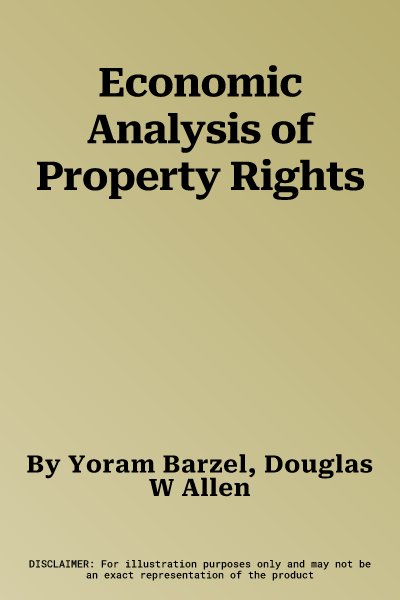Yoram Barzel
(Author)Economic Analysis of Property RightsPaperback, 30 September 2023

Temporarily out of stock
Free Delivery
Cash on Delivery
15 Days
Free Returns
Secure Checkout

Part of Series
Political Economy of Institutions and Decisions
Print Length
300 pages
Language
English
Publisher
Cambridge University Press
Date Published
30 Sep 2023
ISBN-10
1009374729
ISBN-13
9781009374729
Description
Product Details
Authors:
Book Format:
Paperback
Date Published:
30 September 2023
ISBN-10:
1009374729
ISBN-13:
9781009374729
Language:
English
Location:
New York
Pages:
300
Publisher: